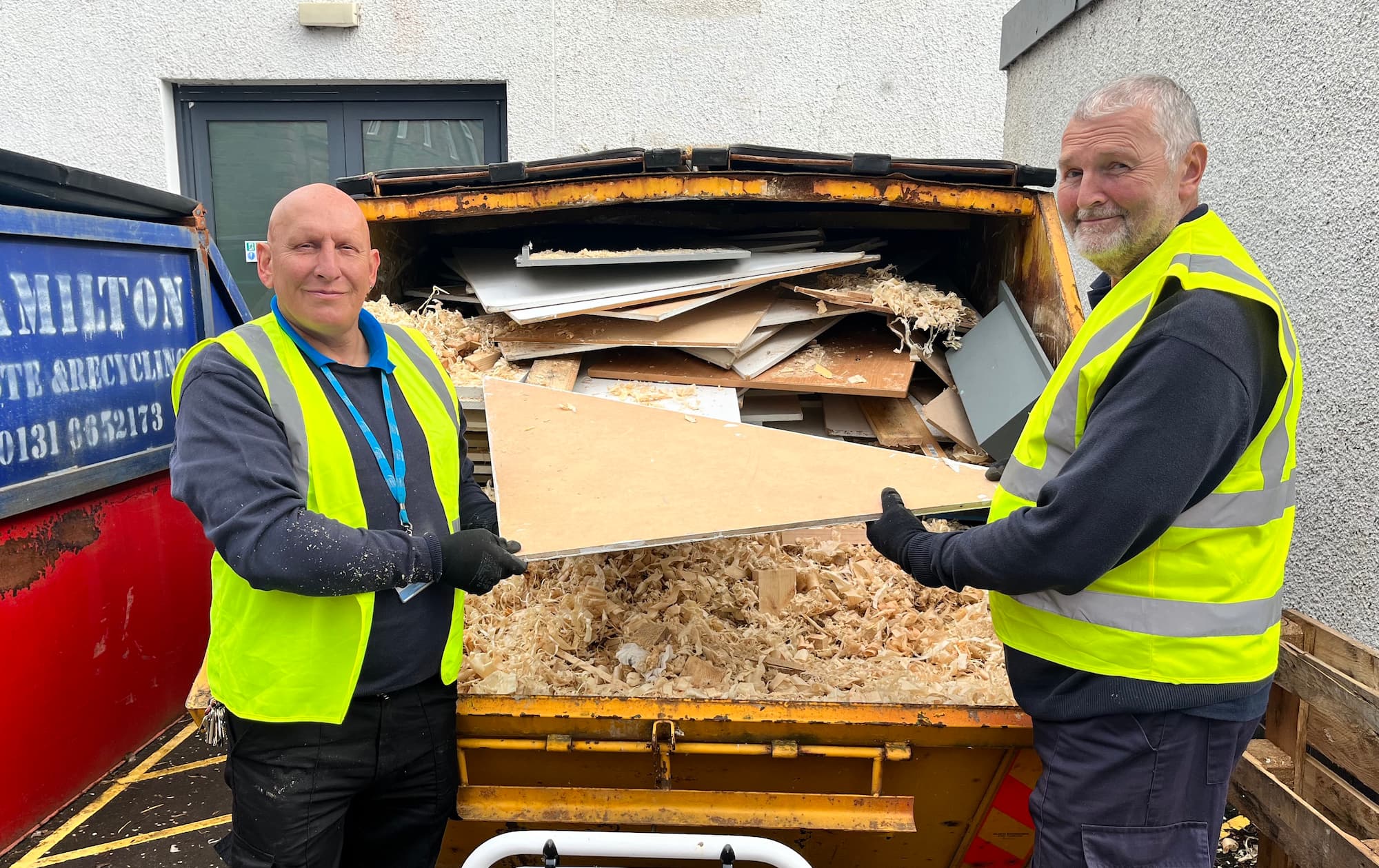(Photo L-R) Jake Dixon – Facilities Team Leader and Pete Newbigging – Facilities Assistant.
It’s a 'rubbish' story!
Borders College is one of the first colleges in Scotland to set up and fully implement a zero-to-landfill policy, which sees no waste from Scottish Borders Campus, Newtown St Boswells Campus and the Tweedbank Campus go to landfill, but instead ensures all waste is fully separated for recycling.
The new environmental scheme, which started in April, is part of the Borders College approach to sustainability and waste management strategy to completely eliminate the disposal of waste in landfill.
Commenting on the scheme, Katrina Fitzgerald, Health and Safety Manager, said:
“Landfill is a major source of environmental pollution and releases greenhouse gases, such as methane, which is a potent contributor to climate change.
“As an organisation that is passionate about sustainability and the environment, we take every opportunity to mitigate any negative impacts that we may have on the environment when we can.
“As part of this scheme, we process not only material from Borders College but also Heriot-Watt University School of Textiles, which is also based at Scottish Borders Campus.”
Robert Hewitt, Director of Facilities at Scottish Borders Campus, commented:
“The advantages of this scheme are clear in terms of the recycling. However, our waste now travels less distance for recycling, which has an obvious carbon footprint benefit. Previously, recyclable waste from our area went as far as Northern Ireland to be recycled but now only goes to East Lothian for processing.”


